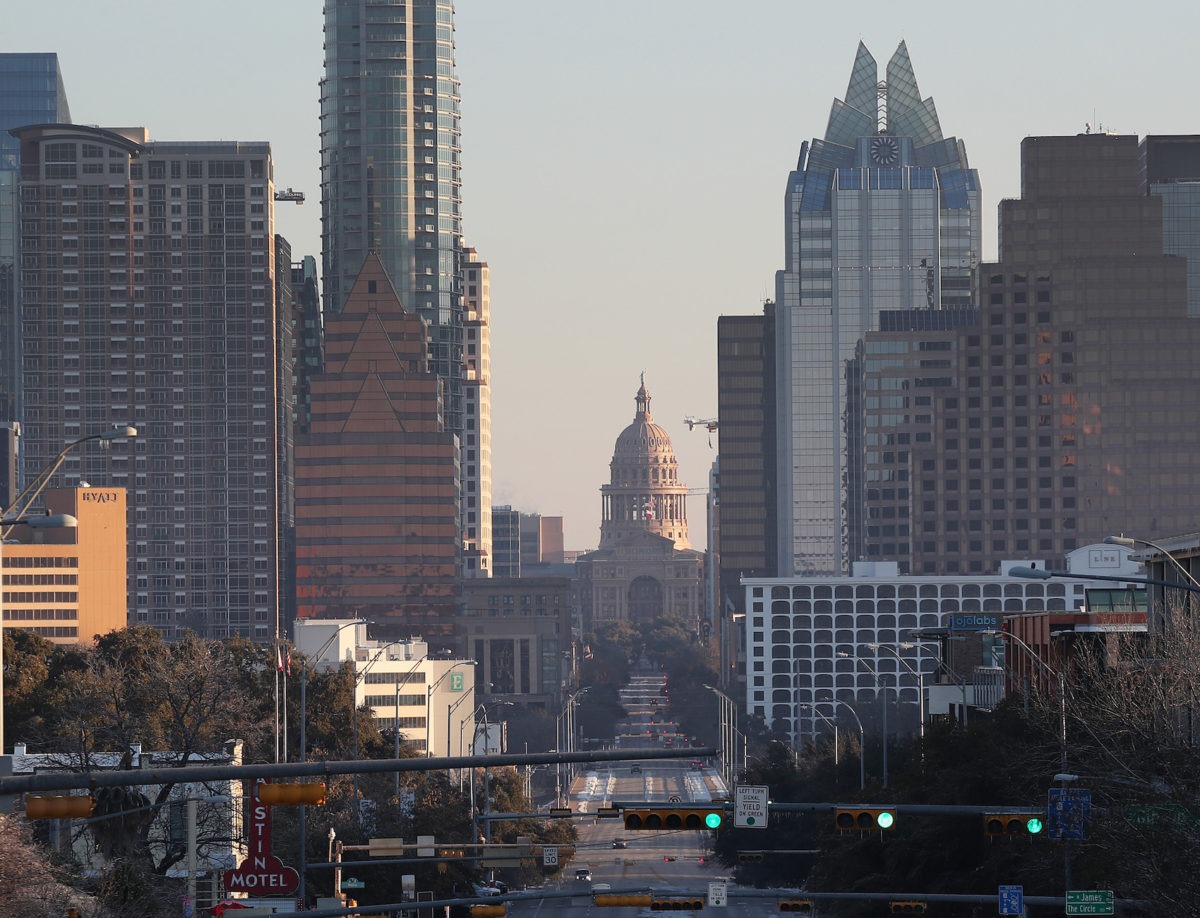Austin Uses Money From Police Budget to Fund Substance Use Care
The city will use $1 million in funds diverted from its police budget to expand substance use treatments and harm reduction services for low-income people in Austin and Travis County.

The Austin City Council approved a measure last month to expand substance use care in the city by providing nearly $1.5 million in funding to three social service agencies. The money will be used to hire additional social and healthcare workers, expand evening and weekend hours at a drop-in clinic, create a new mobile outreach clinic, and fund a residential treatment program for pregnant and parenting women seeking help with substance use.
About $1 million in funding for the initiative comes from the police department’s budget. In August, Austin voted to immediately cut over $20 million from the department’s budget, with most of that money coming from cancelling cadet classes, reducing overtime spending, and eliminating contracts for supplies like license plate readers.
At that time, Councilmember Greg Casar introduced an amendment to provide $350,000 in one-time funding and $650,000 in ongoing funding for substance use treatment in Austin.
“There are widespread substance use challenges in our community, and we know that we can’t arrest away addiction,” said Councilmember Casar. “Through this vote, we will do things differently. We’re expanding street medicine teams, developing health plans for residents experiencing homelessness, and establishing long-term recovery programs. For too long, we’ve measured public safety by how many people we can put in jail. With this change, we’re actually making Austin safer.”
Under the proposal, the city will award contracts to three social service agencies to provide substance use treatment to low-income individuals.
About $203,000 will be awarded to CommUnityCare to expand the organization’s street medicine team by hiring an additional social worker, community health worker, and medical assistant. The street medicine team works with people experiencing homelessness.
Another roughly $1 million in funding will be awarded to the Texas Harm Reduction Alliance. Over $684,000 will be used to fund more counseling and expand drop-in clinic hours. The remaining $350,000 will be used to create a new mobile outreach clinic.
The remaining $230,000 will be awarded to Austin Recovery and will be used to expand access to substance use treatment at the Austin Recovery Network’s Family House Program. The residential treatment program serves uninsured pregnant and parenting women. It allows women to bring a child with them into treatment for 90 days and provides on-site daycare and case management services. The treatment involves group counseling, education programs, individual counseling, and other services.
Earlier this year, the council also agreed to buy two hotels and turn them into permanent supportive housing for people experiencing chronic homelessness. The city will use some money from a $6.5 million fund taken from the police department’s budget to provide services to the residents of the hotels. At full occupancy (which wouldn’t happen this year), services and operating costs for these two hotels are expected to be about $3.8 million annually.
The city’s Homeless Services Division will contract with nonprofit service providers to cover operating costs and set up wraparound services for residents, like case management, support for mental health or substance use issues, workforce development programs, and job placement services. In total, the purchases will create about 140 units of low-barrier permanent supportive housing with these kinds of wraparound services.
In addition to the $20 million in immediate cuts, the Austin City Council agreed in August to take another $80 million from the police department’s budget by moving certain civilian functions out, like dispatch and the forensics lab—though that money will still be spent on those functions, just not within the department.
Austin has now begun the process of separating the forensics lab from the police department. About $13 million taken from the police budget will be used to create an independent forensics lab that carries out the same functions. Under the leadership of the Austin Police Department, the forensics lab had a decades-long rape kit backlog and was shut down after auditors found employees were mishandling evidence.
“Cities that have stepped up and tried to reallocate police budgets have faced backlash usually driven by misinformation for the past few months, but I believe in the next few months, cities that reallocated police funds can start showing results, can start showing what cities can do when we reduce police overspending,” Casar previously told The Appeal. “It’s only possible if we keep rethinking our priorities instead of continuing to over-invest in policing.”
